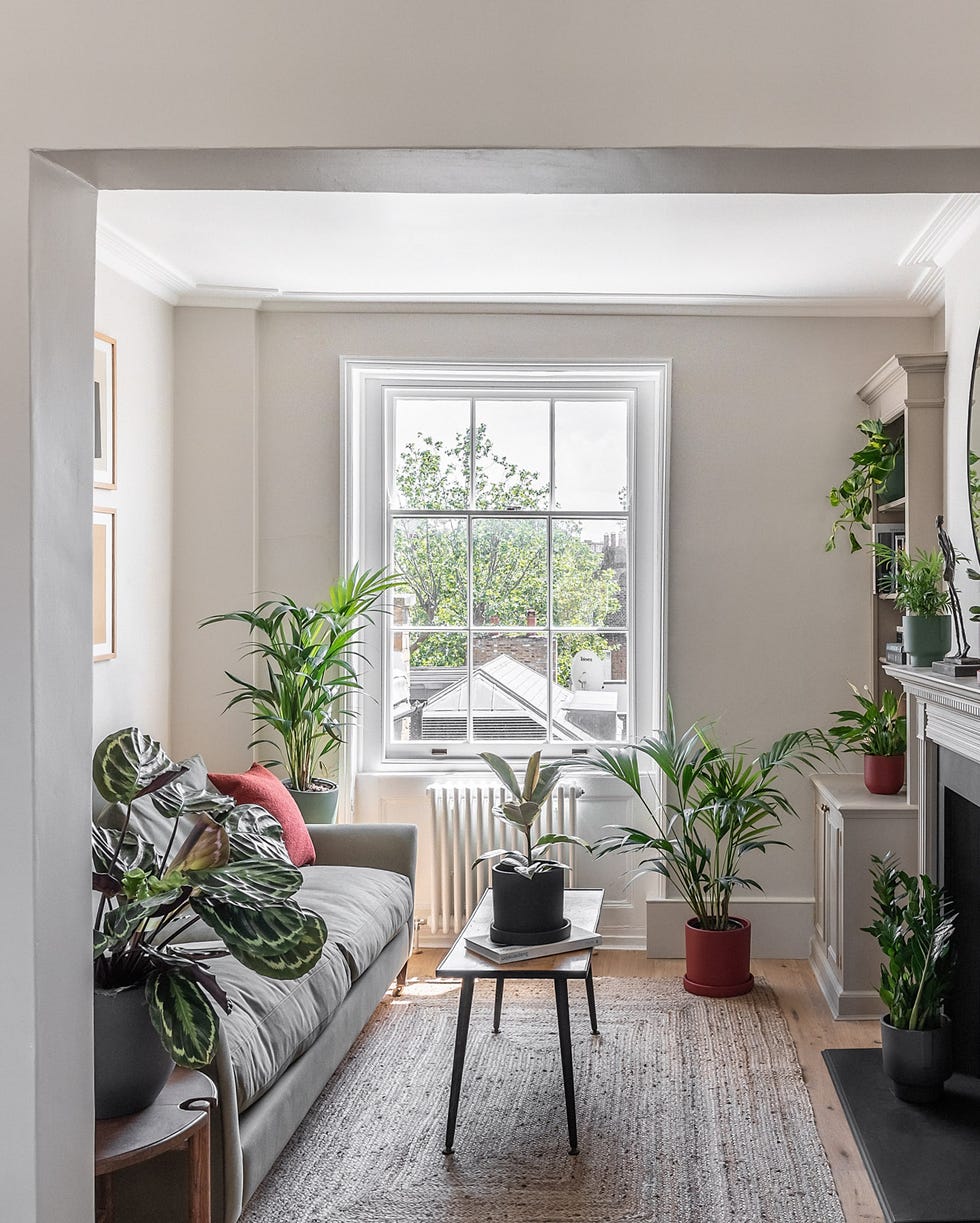Designing a small living room can be a fun challenge that lets you get creative with space-saving ideas and cozy decor. If you’re working with a compact area, it doesn’t mean you have to compromise on style or functionality. In fact, small living rooms can be some of the most charming, personal spaces when decorated thoughtfully. In this guide, we’ll dive into tips and tricks for maximizing every inch of your living room, from layout hacks to furniture and decor ideas that make a big impact without overwhelming the space. Let’s get started on transforming your small living room into a warm, inviting area that feels much larger than it is.
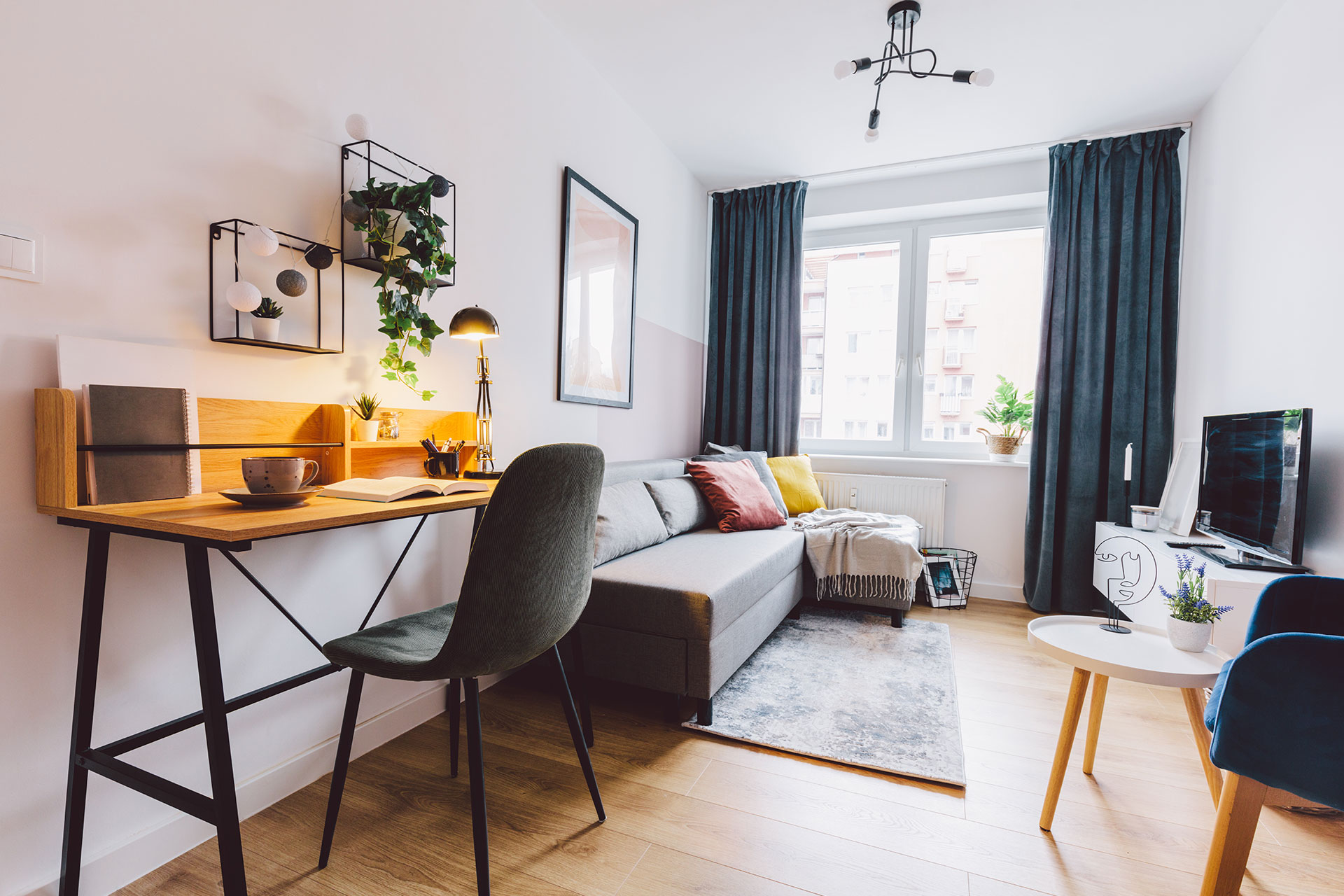
1. Choosing the Right Furniture: Choosing furniture that fits the scale of a small living room is key. Opt for pieces with narrow profiles, exposed legs, or multipurpose functionality. For example, a sofa with a slim design or an armchair that doubles as storage can keep things stylish without cluttering up the space. Compact sectional sofas, ottomans that offer hidden storage, or folding tables are fantastic options. Remember, it’s all about finding pieces that fit comfortably and leave room for movement.
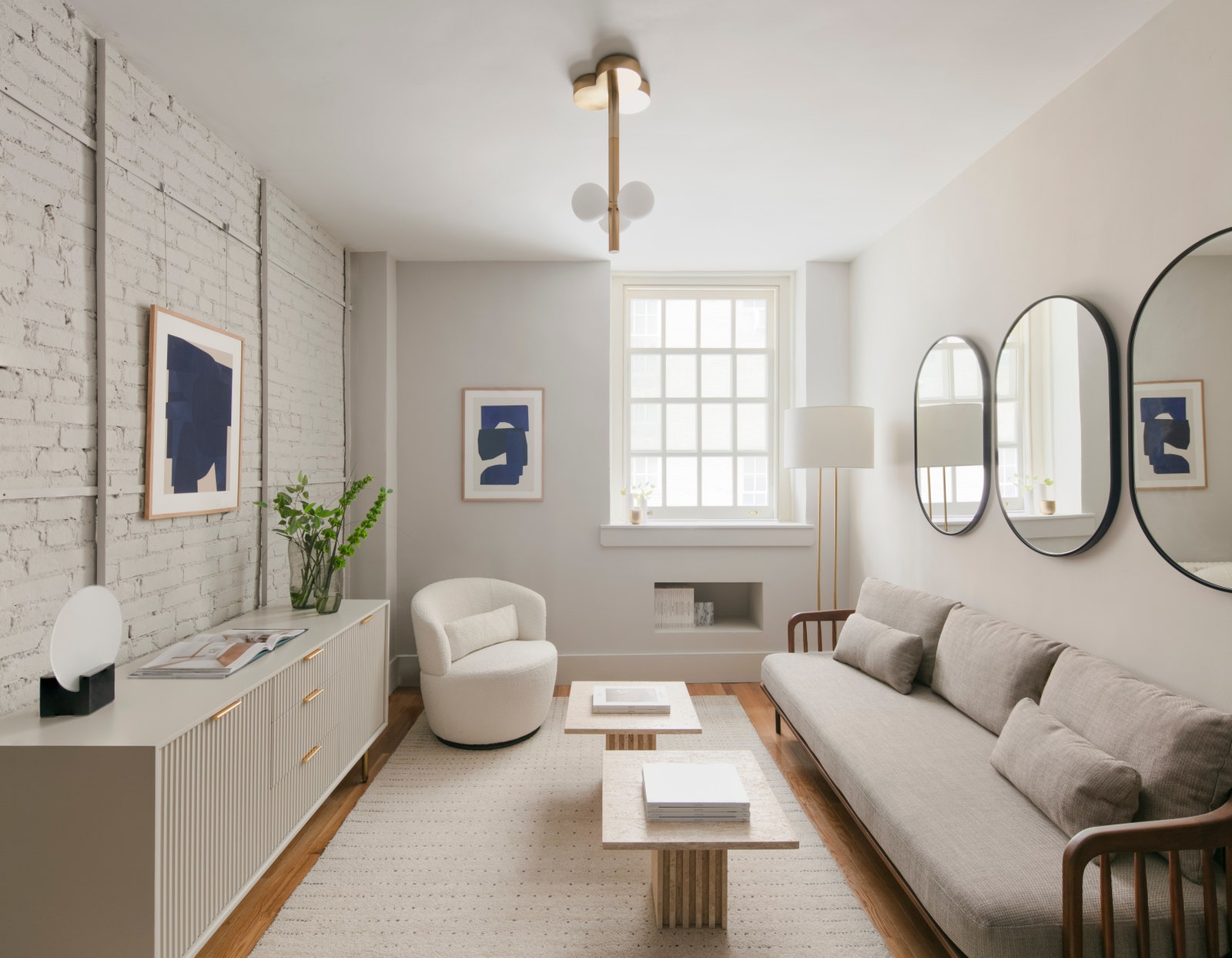
2. Utilizing Vertical Space: When floor space is limited, think vertically! Wall-mounted shelves, tall bookcases, and floating cabinets make excellent use of vertical real estate. This not only provides ample storage but also keeps things visually uncluttered. Incorporate shelving to showcase books, plants, or decorative objects, creating a feeling of openness and height in the room. Plus, this approach draws the eye upward, making the space feel larger.
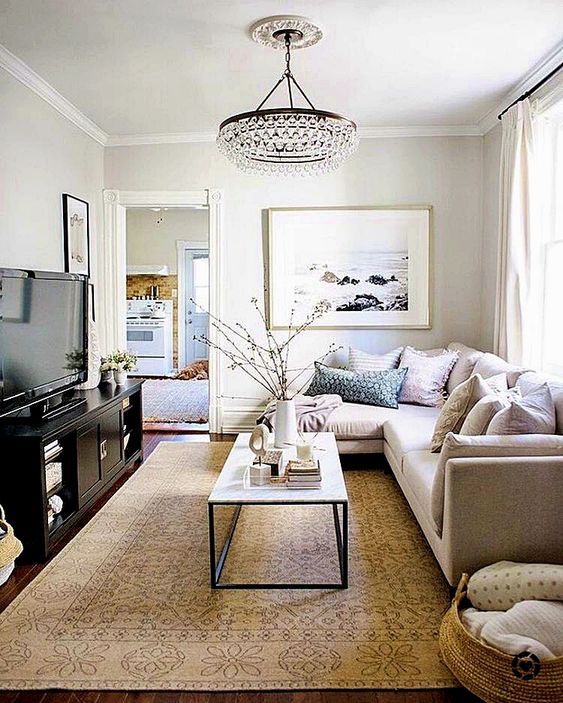
3. Playing with Colors and Patterns: Color choice is essential in small living room design. Light colors such as whites, soft grays, and pastels help reflect light and make a room feel open and airy. If you love bold colors, use them as accents—try a brightly colored throw pillow, rug, or artwork. For patterns, opt for subtle ones like thin stripes or delicate geometric shapes to keep things visually balanced. A strategic color scheme can do wonders in creating a feeling of spaciousness.
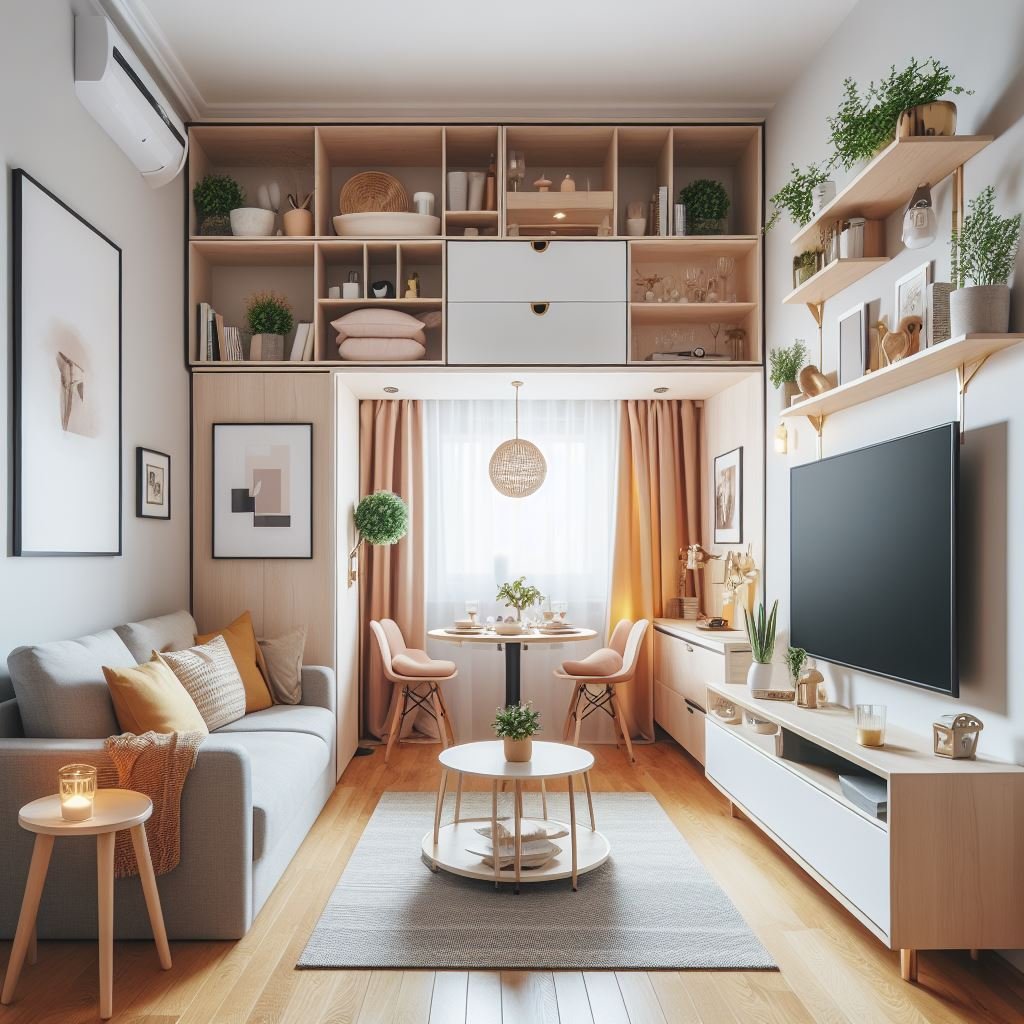
4. Adding Mirrors for Depth: Mirrors are a classic trick for making small spaces appear larger. By reflecting light, they help create an illusion of depth and openness. Consider hanging a large mirror on a main wall, or even go for mirrored furniture, like a console table, to add both style and functionality. Round mirrors or sets of smaller mirrors can also add interesting focal points while boosting the room’s spacious vibe.
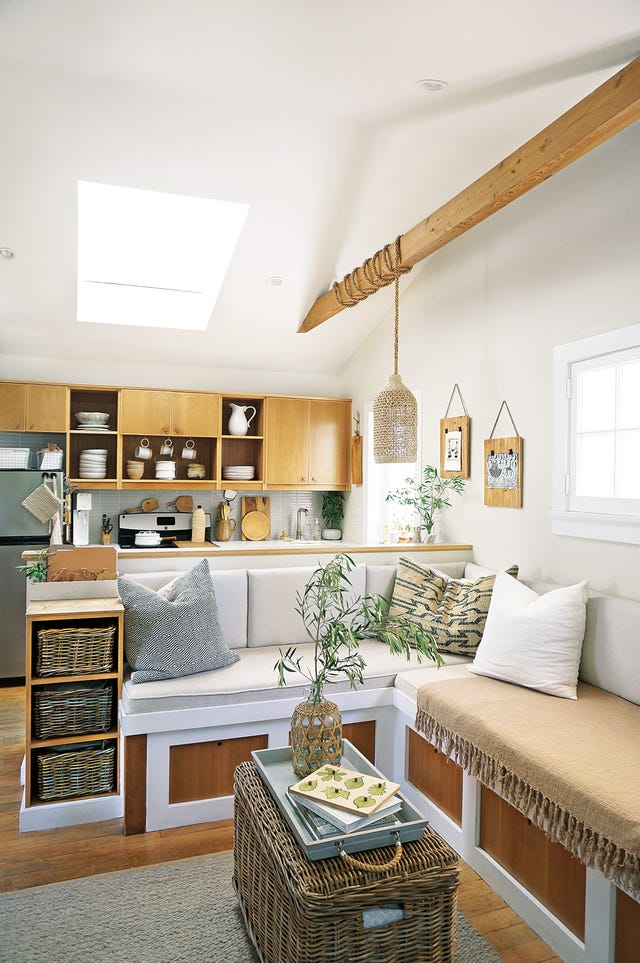
5. Embracing Multi-functional Furniture: In a small living room, every piece of furniture should serve more than one purpose. Look for coffee tables with storage, sofas that can turn into beds, or nesting tables that can be tucked away when not needed. Multi-functional furniture maximizes usability without overcrowding the space, making it easier to keep things organized and looking sleek.
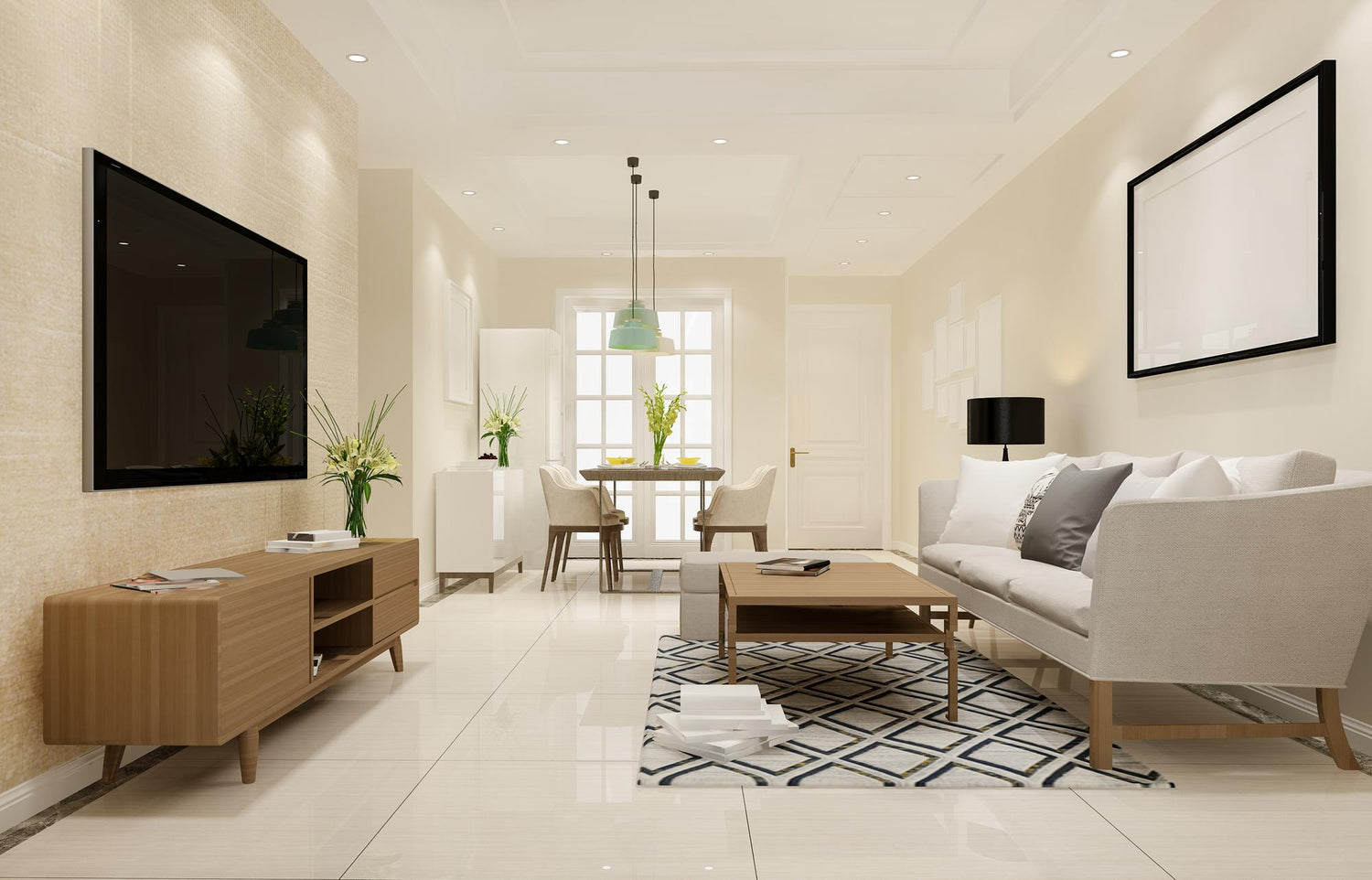
6. Lighting for Small Spaces: Proper lighting can make all the difference in a small living room. Layering different types of lighting—like ceiling lights, floor lamps, and wall sconces—adds depth and dimension to the room. Avoid bulky light fixtures; instead, go for slim, modern designs that blend into the background while providing ample light. Use natural light as much as possible to create a bright and welcoming atmosphere.
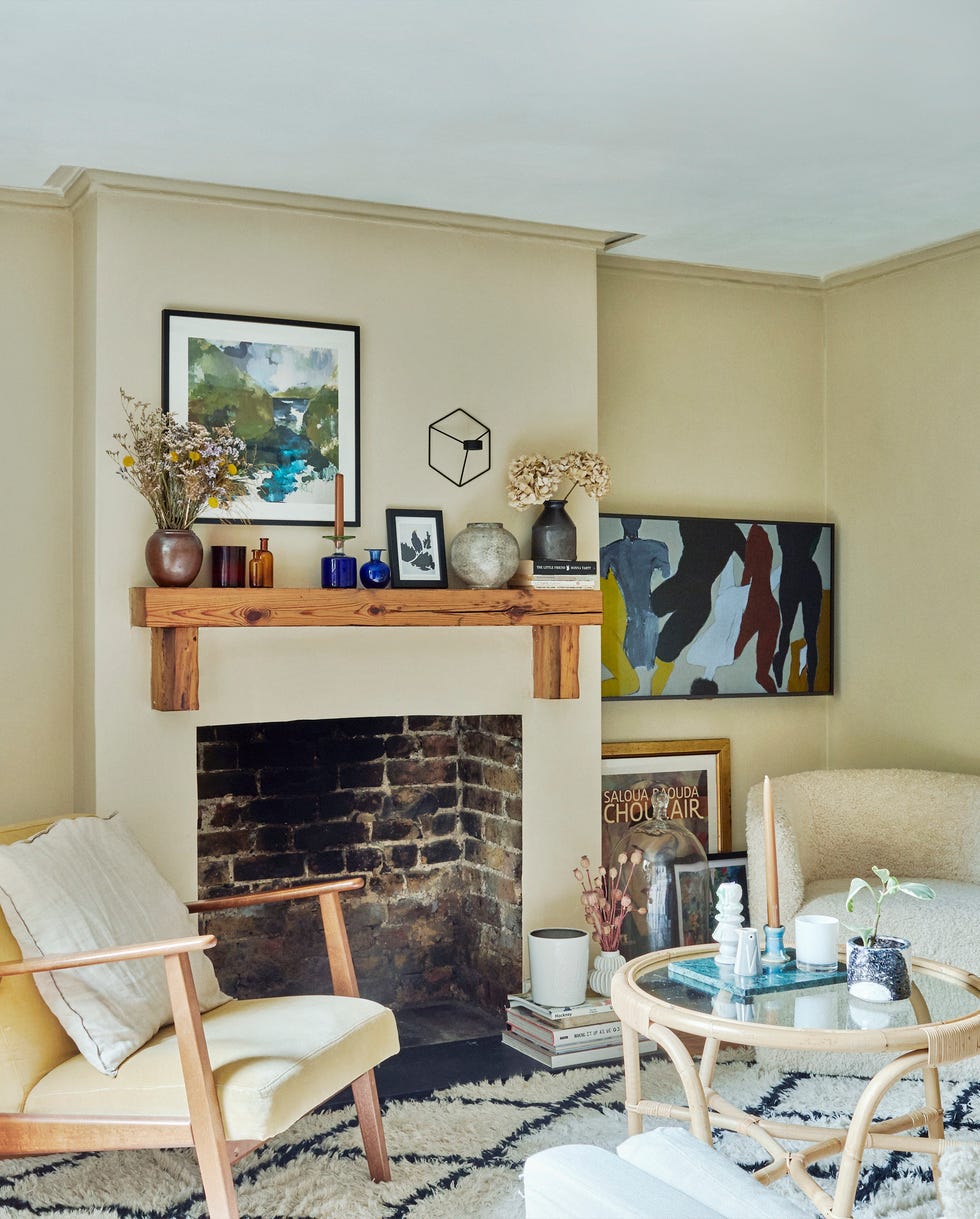
7. Using Area Rugs Wisely: Area rugs can be used to define spaces and make a room feel more organized. In a small living room, choose a rug that isn’t too large or too small—ideally, it should sit under the front legs of your furniture to create a cohesive look. A patterned or textured rug can add a touch of personality without overwhelming the space. This simple addition can anchor the room and give it a cozy, pulled-together feel.
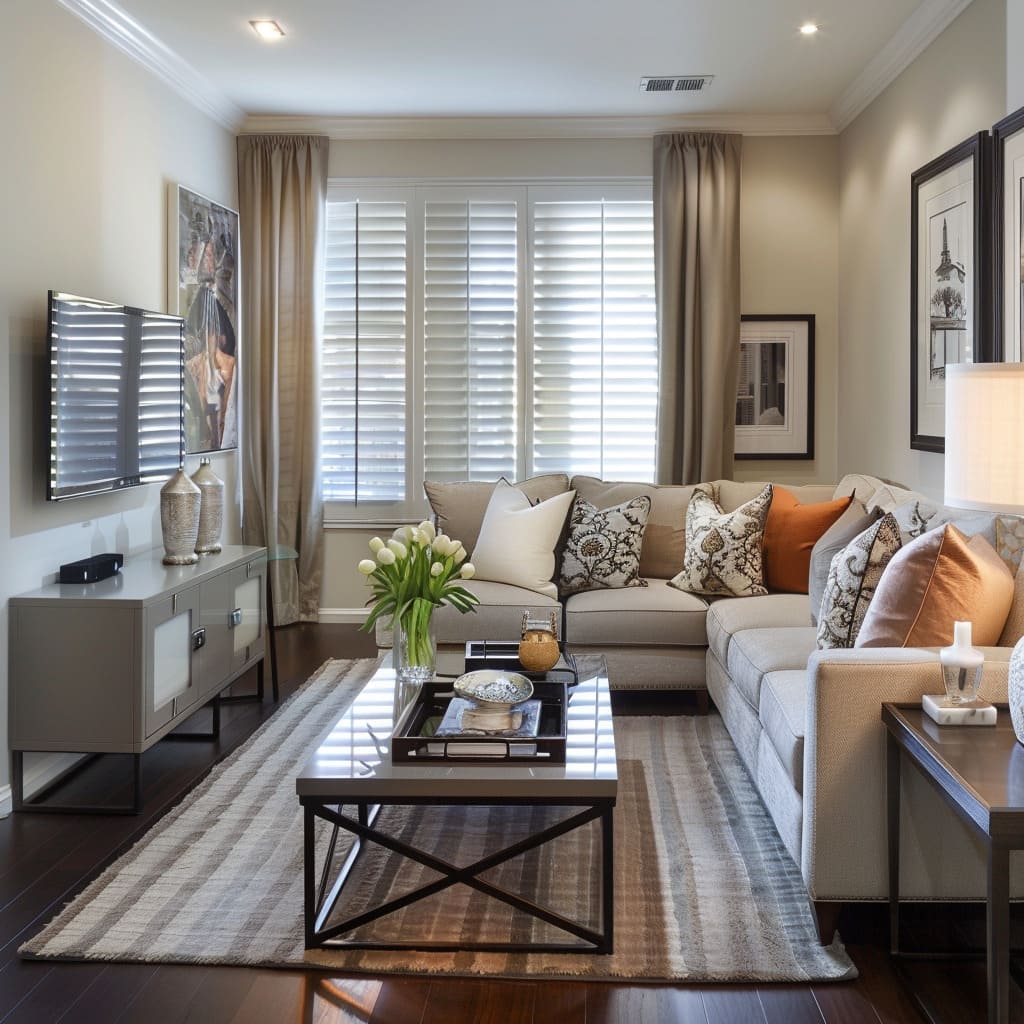
8. Decluttering for a Spacious Feel: Small spaces tend to feel cluttered quickly, so keeping things organized is crucial. Make it a habit to declutter regularly, keeping only items that are essential or meaningful. Use decorative baskets, trays, and hidden storage solutions to reduce visual clutter. A tidy, well-organized room feels more open and relaxing, making your living room a welcoming retreat.
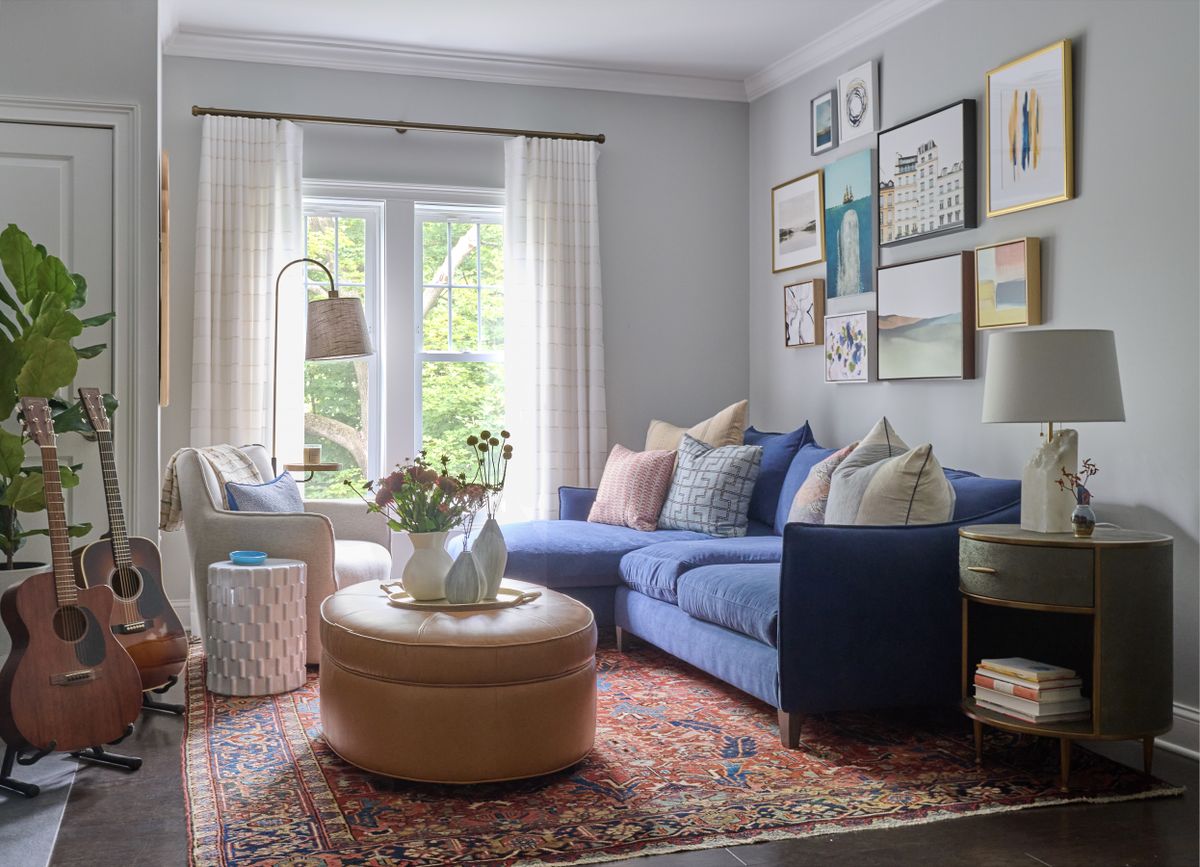
9. Creating Focal Points: Every room needs a focal point, and in a small living room, this can be a well-placed piece of art, a unique piece of furniture, or even a patterned wall. A single, striking focal point draws attention and gives the room character without overcrowding. Consider a statement wall with a bold color, a large artwork, or a textured feature to make the space feel dynamic.
